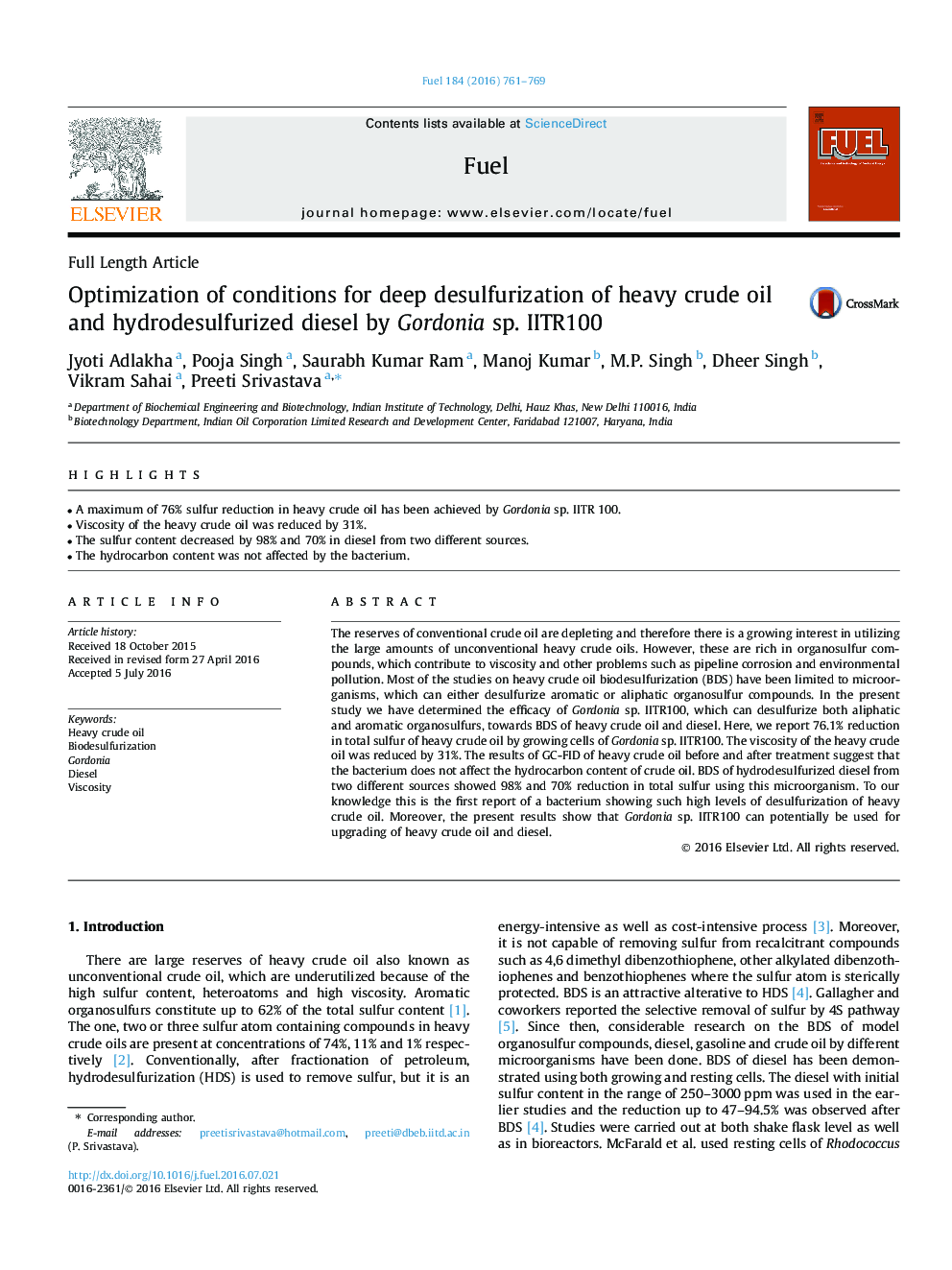| Article ID | Journal | Published Year | Pages | File Type |
|---|---|---|---|---|
| 6633145 | Fuel | 2016 | 9 Pages |
Abstract
The reserves of conventional crude oil are depleting and therefore there is a growing interest in utilizing the large amounts of unconventional heavy crude oils. However, these are rich in organosulfur compounds, which contribute to viscosity and other problems such as pipeline corrosion and environmental pollution. Most of the studies on heavy crude oil biodesulfurization (BDS) have been limited to microorganisms, which can either desulfurize aromatic or aliphatic organosulfur compounds. In the present study we have determined the efficacy of Gordonia sp. IITR100, which can desulfurize both aliphatic and aromatic organosulfurs, towards BDS of heavy crude oil and diesel. Here, we report 76.1% reduction in total sulfur of heavy crude oil by growing cells of Gordonia sp. IITR100. The viscosity of the heavy crude oil was reduced by 31%. The results of GC-FID of heavy crude oil before and after treatment suggest that the bacterium does not affect the hydrocarbon content of crude oil. BDS of hydrodesulfurized diesel from two different sources showed 98% and 70% reduction in total sulfur using this microorganism. To our knowledge this is the first report of a bacterium showing such high levels of desulfurization of heavy crude oil. Moreover, the present results show that Gordonia sp. IITR100 can potentially be used for upgrading of heavy crude oil and diesel.
Related Topics
Physical Sciences and Engineering
Chemical Engineering
Chemical Engineering (General)
Authors
Jyoti Adlakha, Pooja Singh, Saurabh Kumar Ram, Manoj Kumar, M.P. Singh, Dheer Singh, Vikram Sahai, Preeti Srivastava,
